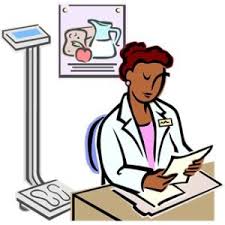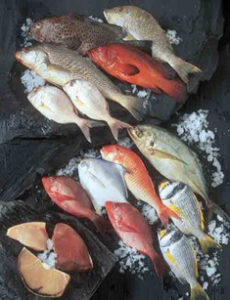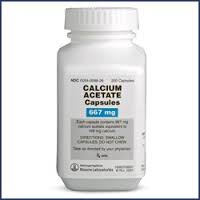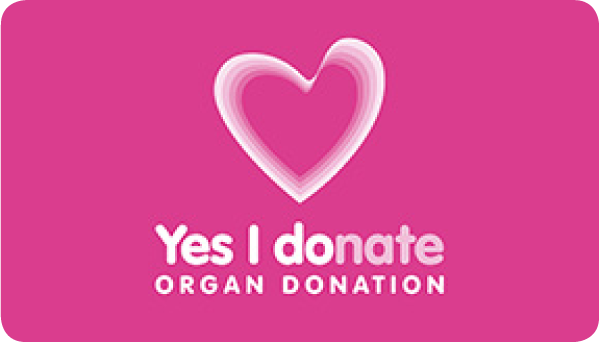End Stage Renal Diet
Kidney function is essential in dealing with the waste material from digested food and the working body. As kidney function worsens, it may be necessary to alter diet to reduce the problems caused by these substances accumulating. Control of diet is also necessary in patients on dialysis, as dialysis only partly replaces kidney function. Finally, many patients with advanced kidney disease lose their appetite and risk becoming undernourished.
The following (adapted) guide from the National Institute of Diabetes and Digestive and Kidney Diseases (NIDDK), National Institutes of Health (NIH) can help you in establishing the right diet for you.
Once you have spoken to your renal dietician and have an understanding of what is right for you, you can then explore the recipes on this website and around the internet.
PLEASE NOTE: this guide was produced for haemodialysis patients. Similar principles apply for peritoneal dialysis patients. Your dietician will guide you through you can be more relaxed and vary these principles.
Introduction
When you start haemodialysis, you must make many changes in your life. Watching the foods you eat will make you healthier. This publication will help you choose the right foods.
Print this publication and use it with a dietitian to help you learn how to eat right to feel right on haemodialysis. Read one section at a time. Then go through the exercise for that section with your dietitian.
Once you have completed every exercise, keep a copy of this publication to remind yourself of foods you can eat and foods you need to avoid.
My dietitian’s name is _____________________________
Phone ___________________
How does food affect my haemodialysis?
Food gives you energy and helps your body repair itself. Food is broken down in your stomach and intestines. Your blood picks up nutrients from the digested food and carries them to all your body cells. These cells take nutrients from your blood and put waste products back into the bloodstream. When your kidneys were healthy, they worked around the clock to remove wastes from your blood. The wastes left your body when you urinated. Other wastes are removed in bowel movements.
Now that your kidneys have stopped working, haemodialysis removes wastes from your blood. But between dialysis sessions, wastes can build up in your blood and make you sick. You can reduce the amount of wastes by watching what you eat and drink. A good meal plan can improve your dialysis and your health.

Talk with a dietitian to learn how to eat right on haemodialysis.
Your clinic has a dietitian to help you plan meals. A dietitian specializes in food and nutrition. A dietitian with special training in care for kidney health is called a renal dietitian.
End Stage Renal Diet
What do I need to know about fluids?
You already know you need to watch how much you drink. Any food that is liquid at room temperature also contains water. These foods include soup, jelly, and ice cream. Fluid can build up between dialysis sessions, causing swelling and weight gain. The extra fluid affects your blood pressure and can make your heart work harder. You could have serious heart trouble from overloading your system with fluid.
Control Your thirst
The best way to reduce fluid intake is to reduce thirst caused by the salt you eat. Avoid salty foods like crisps, bottled sauces, instant noodles and salted meat and fish. Choose low-sodium products.
You can keep your fluids down by drinking from smaller cups or glasses. Freeze juice in an ice cube tray and eat it like a ice lolly. (Remember to count the ice lolly in your fluid allowance!) The dietitian will be able to give you other tips for managing your thirst.
Your dry weight is your weight after a dialysis session when all of the extra fluid in your body has been removed. If you let too much fluid build up between sessions, it is harder to get down to your proper dry weight. Your dry weight may change over a period of 3 to 6 weeks. Talk with your doctor regularly about what your dry weight should be.
My dry weight should be _____________.
Many foods contain water.
Talk With a Dietitian
Even though you are on haemodialysis, your kidneys may still be able to remove some fluid. Or your kidneys may not remove any fluid at all. That is why every patient has a different daily allowance for fluid. Talk with your dietitian about how much fluid you can have each day.
I can have _____ ml of fluid each day.
Plan 1 day of fluid servings:
I can have _____ ml(s) of ______________ with breakfast.
I can have _____ ml(s) of ______________ in the morning.
I can have _____ ml(s) of ______________ with lunch.
I can have _____ ml(s) of ______________ in the afternoon.
I can have _____ ml(s) of ______________ with supper.
I can have _____ ml(s) of ______________ in the evening.
TOTAL _______ mls (should equal the allowance written above)
Talk With a Dietitian
Make a food plan that reduces the potassium in your diet. Start by noting the high-potassium foods (below) that you now eat. A dietitian can help you add other foods to the list.
| apricots avocados bananas beetroot Brussels sprouts cantaloupe |
dates figs kiwi fruit melons orange juice peanuts pears (fresh) |
prune juice prunes raisins spinach tomatoes Butternut squash |
Others:______________________________________
What do I need to know about phosphorus?
Phosphorus is a mineral found in many foods. If you have too much phosphorus in your blood, it pulls calcium from your bones. Losing calcium will make your bones weak and likely to break. Also, too much phosphorus may make your skin itch. Foods like milk and cheese, dried beans, peas, colas, nuts, and peanut butter are high in phosphorus. Usually, people on dialysis are limited to 1/3 pint (200ml) of milk per day. The renal dietitian will give you more specific information regarding phosphorus.
You probably will need to take a phosphate binder like Calcichew, or calcium acetate to control the phosphorus in your blood between dialysis sessions. These medications act like sponges to soak up, or bind, phosphorus while it is in the stomach. Because it is bound, the phosphorus does not get into the blood. Instead, it is passed out of the body in the stool.
What do I need to know about protein?
Before you were on dialysis, your doctor may have told you to follow a low-protein diet. Being on dialysis changes this. Most people on dialysis are encouraged to eat as much high-quality protein as they can. Protein helps you keep muscle and repair tissue. The better nourished you are, the healthier you will be. You will also have greater resistance to infection and recover from surgery more quickly.
Your body breaks protein down into a waste product called urea. If urea builds up in your blood, it’s a sign you have become very sick. Eating mostly high-quality proteins is important because they produce less waste than others. High-quality proteins come from meat, fish, poultry, and eggs (especially egg whites).

Poultry and fish, like plaice, haddock , coley and pollock, are good sources of high-quality protein.
Talk With a Dietitian
Meat, fish, and chicken are good sources of protein. Talk with a dietitian about the meats you eat.
I will eat ______ servings of meat each day. A regular serving size is 3 ounces. This is about the size of the palm of your hand or a deck of cards.
Try to choose lean (low-fat) meats that are also low in phosphorus. If you are a vegetarian, ask about other ways to get your protein.
Low-fat milk is a good source of protein. But milk is high in phosphorus and potassium. And milk adds to your fluid intake. Talk with a dietitian to see if milk fits into your food plan.
I (will) (will not) drink milk. I will drink ______ cup(s) of milk a day.
What do I need to know about calories?
Calories provide energy for your body. If your doctor recommends it, you may need to cut down on the calories you eat. A dietitian can help you plan ways to cut calories in the best possible way.
Some people on dialysis need to gain weight. You may need to find ways to add calories to your diet. Vegetable oils-like olive oil, rapeseed oil, and sunflower oil-are good sources of calories. Use them generously on breads, rice, and noodles.
Butter and margarines are rich in calories. But these fatty foods can also clog your arteries. Use them less often. Soft margarine that comes in a tub is better than solid margarine. Vegetable oils are the healthiest way to add fat to your diet if you need to gain weight.
sweets, sugar, honey, jam, and jelly provide calories and energy However, if. If you have diabetes, be very careful about eating sweet foods. A dietitian’s guidance is very important for people with diabetes.
Should I take vitamins and minerals?
Vitamins and minerals may be missing from your diet because you have to avoid so many foods. Your doctor may prescribe a vitamin and mineral supplement like Dialyvit or Renavit
Take only the vitamins your doctor prescribes.
Warning: Do not take vitamin supplements that you can buy off the shop shelf. They may contain vitamins or minerals that are harmful to you.






